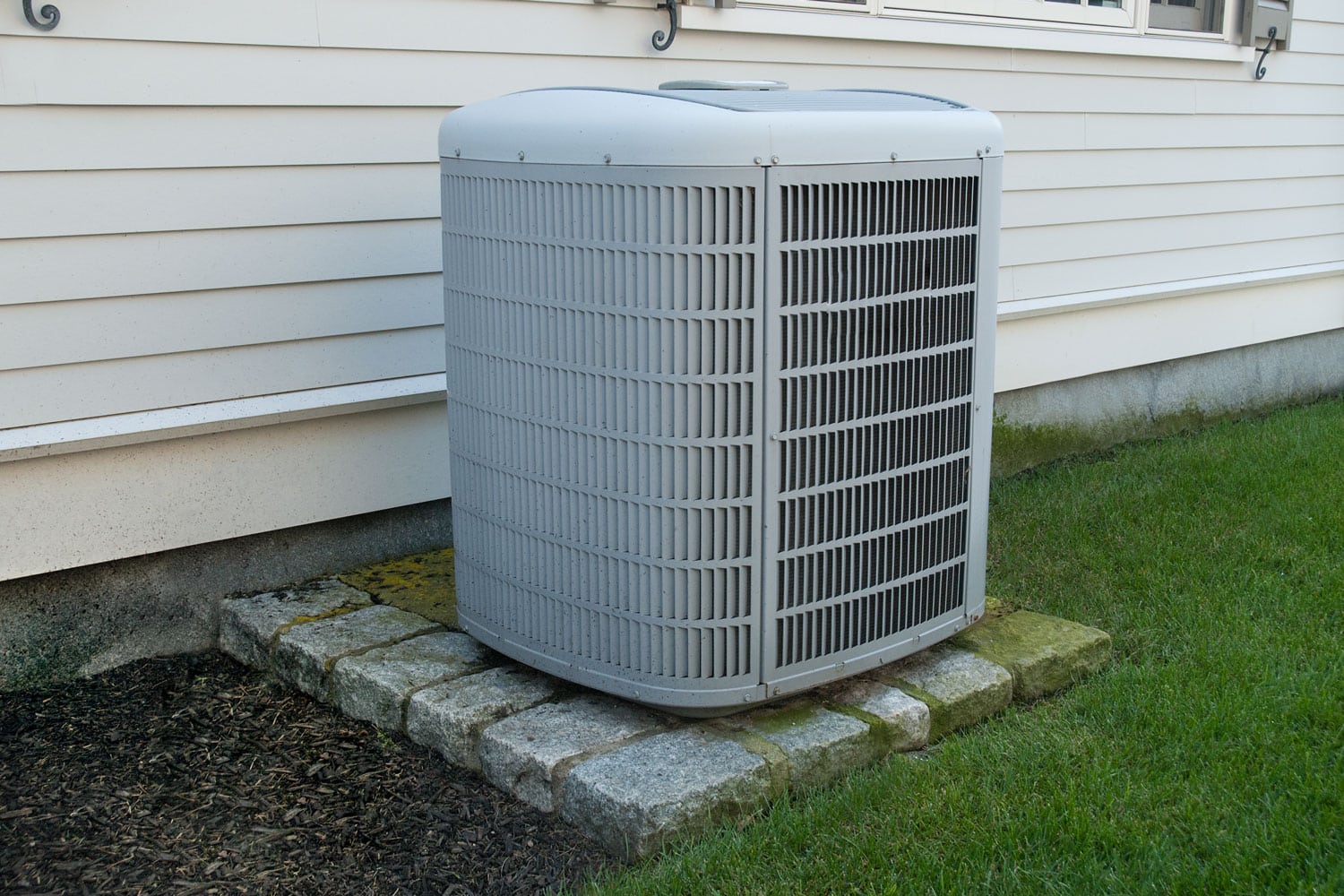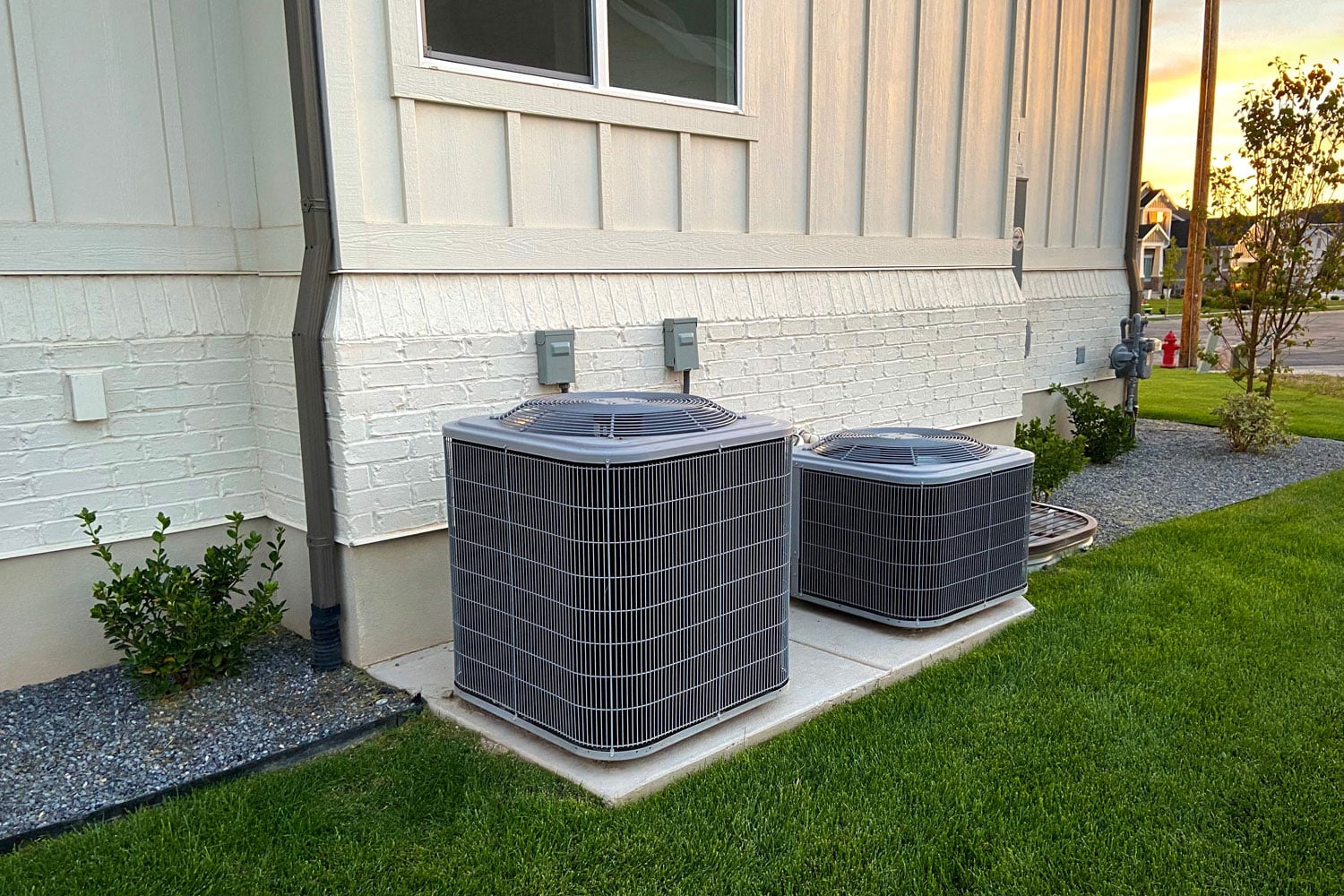Choosing the right air conditioner size for your home is crucial for maintaining a comfortable living environment.
With so many options available in the market, deciding which one is right for you can be overwhelming.

A common dilemma homeowners face is choosing between a 2.5-ton, 3-ton, or 4-ton air conditioner.
Though a larger AC might seem appealing, bigger doesn't always equate to better.
An oversized AC can result in higher energy costs and poor cooling, while an undersized one may underperform and wear out faster.
So, how do you determine which size is right for your home?
Let's find out!
How Are AC Sizes Measured?
In the world of air conditioning, a ton of cooling capacity is typically understood to represent 12,000 BTUs (British Thermal Units) per hour.
AC units generally begin with a base size of 1.5 tons. As they get larger, they increase in half-ton increments, like 1.5-ton, 2-ton, 2.5-ton, and so forth.
For a bit of perspective on what this means in practical terms: a 2.5-ton air conditioner has the ability to whisk away 30,000 BTUs of heat every hour.

Following that pattern, a 3-ton unit can tackle 36,000 BTUs, a 4-ton system can handle 48,000 BTUs, and so on.
But how does this relate to the space you're trying to cool? Well, for each half-ton size, you can expect it to cool between 750 to 1,000 square feet.
So, a 2-ton AC unit, for instance, might be well-suited for a space around 1,500 to 2,000 square feet.
But remember, size is a balance. An oversized system for a room will cool it rapidly, resulting in short cooling cycles.
These short bursts can be wasteful in terms of energy and may not dehumidify the space properly.
Conversely, an undersized unit constantly works harder, raising energy bills and stressing the system.
Deciding Between 2.5 Ton Vs. 3 Ton Vs. 4 Ton
Now, let's take a closer look at the differences between 2.5-ton, 3-ton, and 4-ton air conditioners to help you determine which size is right for your home.
2.5-Ton AC Units
A 2.5-ton air conditioning unit is perfect for a home that is between 1,500 to 2,000 square feet.
This site is geared towards moderate spaces.
They're typically seen in average-sized bedrooms or small apartments where the demand for cooling isn't as high as in larger spaces.
If you have a smaller home or live in a cooler climate, a 2.5-ton unit may be the perfect size.
3-Ton AC Units
A 3-ton air conditioning unit is ideal for a home that is between 2,000 to 2,500 square feet.
3 ton AC units sit in the middle of the range and are versatile for various uses. These units are often used in medium-sized homes or individual large rooms.
4-Ton AC Units
4-ton AC units are engineered for large spaces, between 2,500 to 3,500 square feet.
Whether it's a big home or a commercial space, these units have the cooling capacity to manage high demands effectively.
They are aimed at those with a significant amount of square footage to cool and face challenging conditions like extreme heat.
Refer to the table below for approximate estimates.
| Home Size (sq ft) | AC Size (Tons) | BTUs per Hour |
|---|---|---|
| 750 - 1,000 | 1.5 | 18,000 |
| 1,001 - 1,500 | 2 | 24,000 |
| 1,501 - 2,000 | 2.5 | 30,000 |
| 2,001 - 2,500 | 3 | 36,000 |
| 2,501 - 3,000 | 3.5 | 42,000 |
| 3,001 - 3,500 | 4 | 48,000 |
| 3,501 - 4,000 | 4.5 | 54,000 |
| 4,001 - 4,500 | 5 | 60,000 |
Remember, these are only rough guidelines. The actual cooling needs can vary due to factors like insulation, number of windows, and external temperatures.
Always consult with a qualified HVAC professional for a more precise assessment.
Related article: How To Size A Portable AC Unit
Factors To Consider When Choosing An AC Size
When it comes to choosing the right size air conditioner for your home, there are several factors to consider.
Here are some key factors to remember when deciding between a 2.5-ton, 3-ton, or 4-ton AC unit.
Room Or House Square Footage
The area you aim to cool is pivotal in your AC choice. Naturally, larger spaces demand more substantial units to achieve adequate cooling.
Always ascertain your space's square footage before finalizing your pick.
Regional Climate Conditions
Your geographical location's typical climate should also weigh into your decision.
Living in a hot and humid climate may require a larger AC unit to cool your home effectively.
On the other hand, if you live in a cooler climate, a smaller AC unit may be sufficient.
It's essential to consider your area's average temperature and humidity levels when choosing an AC size.
Insulation Quality
Your home's insulation efficiency can also impact your needed AC unit size.
Homes with superior insulation might get by with smaller units. In contrast, spaces with subpar insulation might demand larger units for efficient cooling.
An insulation check-up can offer insights before you land on an AC size.
Elevation Of Ceilings
Ceiling height, too, plays its part. Spaces graced with lofty ceilings might call for a more robust AC unit.
However, smaller units might adequately serve areas with more standard ceiling heights. Ensure you have a ceiling height measurement in hand while deciding.
Other Considerations
Other aspects, including the number of windows in your home, the direction your home faces, and the number of occupants in your home, also play a role.
So, make sure to take these factors into account as well when choosing an AC size.
Also read: Does Furnace Size Affect Air Conditioning?
Potential Pitfalls Of Incorrect AC Sizing
Choosing the wrong size air conditioner can lead to many problems that can negatively impact your comfort and your wallet.
Here are some potential pitfalls of incorrect AC sizing:
Reduced Efficiency And Lifespan
As mentioned, oversized units will cycle on and off more frequently, consuming more energy in the process.
On the other hand, an undersized unit will run constantly to satisfy cooling needs, leading to quicker wear and tear.
Higher Energy Bills
Related to the point above, if your system isn't running efficiently because of its size, it can significantly increase your monthly utility bills.
Fluctuating Temperatures
Oversized units can lead to rapid cooling and frequent cycling off, resulting in noticeable temperature swings and discomfort.
Potential Moisture Issues
A system that doesn't run long enough, as seen with oversized units, might not remove moisture effectively.
This can lead to mold growth and other issues within the house.
Final Thoughts
Choosing the right AC size ensures that your home stays cool and comfortable.
As we have seen, the size of your AC unit depends on several factors, including the size of your home, the climate in your area, and your budget.
Remember, bigger isn't always better. An oversized AC unit can lead to higher energy bills, increased wear and tear on the unit, and poor indoor air quality.
On the other hand, an undersized unit may not be able to cool your home effectively.
For optimal results and peace of mind, seek guidance from a seasoned HVAC technician when selecting the ideal size for your home's air conditioning unit.
